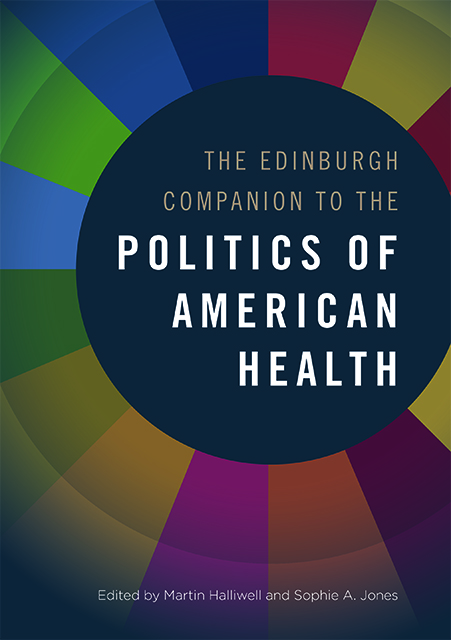Book contents
- Frontmatter
- List of Contents
- Notes on Contributors
- Introduction: The Political Landscapes of American Health, 1945–2020
- I Geography, Community and American Health
- II Critical Health Conditions: Debates and Histories
- III The Politics of Children's Health
- IV The Institutional Matrix of Health Care
- V The White House, Congress and Health Reform
- VI Justice, Ethics and American Health
- VII Public Health and Global Health
- General Bibliography
- Index
14 - On the Possibility of Affirmative Health Care for Transgender Children
Published online by Cambridge University Press: 12 August 2023
- Frontmatter
- List of Contents
- Notes on Contributors
- Introduction: The Political Landscapes of American Health, 1945–2020
- I Geography, Community and American Health
- II Critical Health Conditions: Debates and Histories
- III The Politics of Children's Health
- IV The Institutional Matrix of Health Care
- V The White House, Congress and Health Reform
- VI Justice, Ethics and American Health
- VII Public Health and Global Health
- General Bibliography
- Index
Summary
The medicalization of transgender and nonbinary people is framed by an impossible drama. The demand for health care, particularly the medical and psychological care associated with transition, has since the mid-twentieth-century emergence of the contemporary diagnostic model required nothing less than the assertion of life and death stakes. The predominant architects of the medical model then called transsexuality, such as endocrinologist Harry Benjamin, stressed that offering hormones and surgery to trans people was a form of last resort. Writing in 1967, Benjamin polemicized that ‘untreated transsexuals are among the most miserable people I have ever met’. Claiming their ‘extreme unhappiness’ inevitably ‘brings them to the verge of suicide or self-mutilation’, Benjamin's ostensibly compassionate plea to his peers was simple: ‘sex reassignment surgery can truly save lives’. Over fifty years later, despite the tidal shifts in trans visibility and the delivery of health care in the United States, this logic of urgency and the spectre of death has hardly disappeared. Today, the twinned emergencies of the murder of Black and brown trans women and the suicide rate of trans people overall are frequently invoked as the moral and political imperative behind making trans health care delivery more accessible and competent. The ostensibly lifesaving purpose of transgender health care remains its primary drama.
This narrative drama is perhaps nowhere more heightened than in the case of transgender children, whose potential suicides are often invoked against the backdrop of various efforts under way to legally ban, administratively curtail and socially isolate them from possibilities of affirming their gender identities and living in even the most basic safety. Yet the increased targeting of children's access to health care in a wider political and cultural war over trans people is occurring at precisely the same moment that the diffuse, heterogeneous landscape of transgender health care is also undergoing one of its most profound historical shifts. The conditional, pathologizing model of transsexuality constructed by Benjamin and his peers is now being recast as what is called the gender affirming or trans affirmative model of care. This shift away from medical providers as evaluators of trans people's diagnostic worthiness and towards the default granting of whatever mental and physical care to which they might consent is an immense transition of its own.
- Type
- Chapter
- Information
- The Edinburgh Companion to the Politics of American Health , pp. 236 - 244Publisher: Edinburgh University PressPrint publication year: 2022



